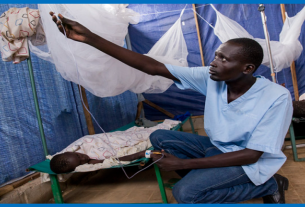In acknowledging that life is simply not fair and often well beyond our understanding, some of us deal with this fact better than others. Perhaps it is at this time that faith plays a greater role. I am reminded of how those dealing with loss have looked to those considered “more religious,” who are seen as having access to coping tools that more easily help them to ultimately come to terms with their pain. Perhaps this is partly due to their ability to sit with such uncertainty and “have faith” that all will turn out okay in the end.
How can this be applied to our own lives?
Therefore, now more than ever, it is important to have hope, even though this can be difficult.
It is easy to feel that things happen to us and that, as a result, we cannot do anything to change a situation. We feel “done to” and forget that there is always something we can do, no matter how small, that will make a difference.
FOR EXAMPLE, I felt terribly depressed when, many years ago, I was told that my mother had 48 hours left to live; my father-in-law had a failed cardiac procedure and was in the ICU in another country; and my son was diagnosed with pneumonia – all during a blizzard which closed the highways and sky. At the time, it felt traumatic and I was definitely overwhelmed. For a short period of time, I felt almost immobile. My need to do something ultimately kicked in. Not looking back and asking why this all happened but looking forward and asking what I could do about it made a huge difference at the time. I could not change the facts, but I could do something about them. I vowed to give my mother the best two days I could, sent my husband for a visit to his parents, and made sure my son took his antibiotics.
So, while the facts didn’t change, my attitude did; I felt less helpless and more empowered, hopeful, and optimistic. I had a plan that didn’t alter what was happening but did change how I felt. While I could be accused of wearing rose-tinted glasses by the pessimists I know and love, I was happier with a plan that helped propel me forward and gave me purpose.
Prior to drawing up a plan for sustaining hope and building optimism today, it’s important to take a step back and examine the factors that influence your individual approach to a situation.
HOW WELL can you calm yourself in order to sit with the issues and work them through? Can you breathe in such a way that your pre-frontal cortex or logical brain can be of help? If not, you will be in flight, fright, or freeze mode and won’t be much help to yourself or anyone else. Exercises that take about 10 minutes to learn can help you enormously with anxiety, sleep, pain, and more.
When you are calm, it’s easier to be more attentive to what is happening around you and envisage other possibilities.
What are you noticing? How are you feeling, physically? What are your thoughts and concerns? How can you appreciate whatever you see, feel, or experience?
Can you allow hopefulness and positivity to exist side by side with the uncertainty that everyone feels?
Can you recognize and come to understand that you can only control what is within your power, and yet, in spite of everything, there is much you can feel in control of? This is enormous and can give you a greater sense of hope and optimism.
With respect to my personal example, while I could not do much after the doctor said my mom had only 48 hours to live, I could make them the best she could have. In fact, I got to have eight more weeks with my mother and learned that no one can play God and predict exactly how much time you have or what the exact outcome of a situation might be.
We don’t have control over the “package” we are given in life, but we certainly do have control over what we do with it. Remember that how you think about your problem will influence you to feel full of hope or sadness. I would rather choose hope. We have so much to be proud of and be grateful for, and now is the time to focus on this.
Please seek professional help if you are having problems coping during these very difficult days.
Help is, literally, a phone call away.
The writer is a licensed clinical psychologist in private practice in Ra’anana and author of Life’s Journey: Exploring Relationships – Resolving Conflicts. She has written about psychology in The Jerusalem Post since 2000 and specializes in trauma, grief, and bereavement. [email protected], drbatyaludman.com


